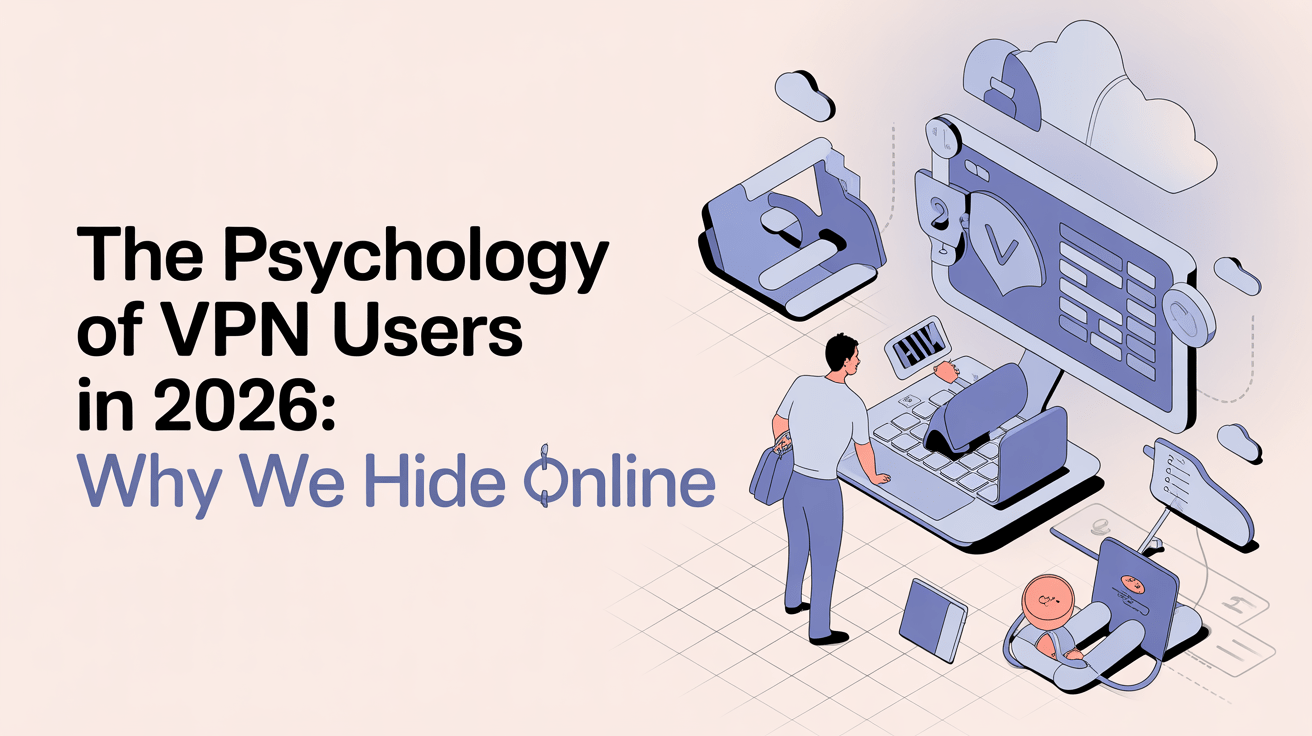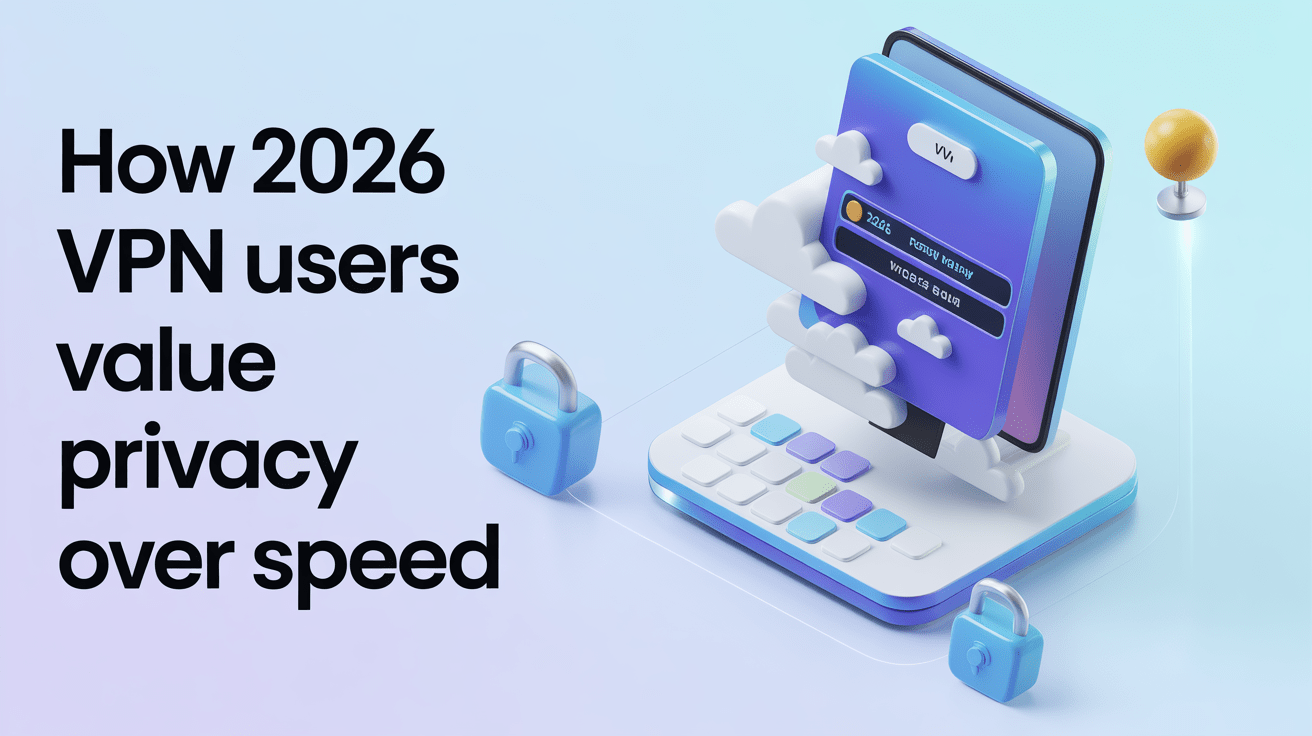
In the rapidly evolving digital landscape of 2026, the role of Virtual Private Networks (VPNs) has transcended mere technical utility. Today, VPN adoption reflects deeply ingrained psychological and sociotechnical dynamics that reveal why individuals and organizations hide online. This article delves into the nuanced psychology underpinning VPN usage, analyzing how evolving cyber threats, privacy paradigms, and socio-digital behaviors drive this hidden yet pervasive online behaviour.
For developers, security engineers, researchers, founders, and investors, understanding the psychology behind VPN users elucidates emerging trends that will dominate the next decade of secure connectivity – delivering outstanding performance! By dissecting motivations, fears, and contextual factors shaping VPN adoption, we decode the hidden tapestry of trust, control, and risk mitigation in cyberspace.
Why Privacy Anxiety Fuels VPN Adoption in 2026
Perception vs Reality: The Amplification of Online Threats
Despite continuous progress in cybersecurity, privacy anxiety-the fear of pervasive surveillance, data theft, and profiling-remains a primary psychological driver for VPN use.Heightened awareness about complex tracking tactics by corporations, governments, and cybercriminals intensifies users’ defensive behaviors.
According to the Pew Research Center study on privacy concerns in 2023, a majority of online users indicated heightened wariness about data misuse, influencing their reliance on encrypted tunnels like VPNs even when actual threat exposure is uneven.
Psychological Mechanisms: Control and Agency online
VPNs serve a dual psychological purpose: not only do they provide tangible privacy protection, but they also restore a sense of agency and control for users overwhelmed by opaque data ecosystems. This empowerment is critical, as it helps reduce cognitive dissonance surrounding digital footprint visibility and mitigates helplessness in an surroundings often perceived as opposed.
Risk Perception and the Behavioral Economics of VPN Use
Trust Deficit and Risk Aversion in Decision-Making
Modern VPN users exhibit a pronounced risk aversion bias, shaped by mistrust in traditional internet service providers (ISPs), social media platforms, and even governments. This leads to a preference for adopting VPNs as a hedge – an insurance policy - against uncertain and emerging online privacy threats.
Behavioral economists highlight this heuristic as a loss aversion effect were potential losses from identity theft or personal surveillance loom larger than the cost or inconvenience of using a VPN service.
Cost-Benefit Analysis: VPNs as Protective Infrastructure
For many users, VPNs are perceived as an essential infrastructure, akin to firewalls or antivirus tools, where the costs – potential latency, subscription fees, or complexity – are outweighed by the perceived benefit of anonymity, unblocking content, or secure access to sensitive resources.
The Identity-Protection Paradox in VPN Psychology
Anonymous Yet Trackable: The Limits of VPN-Powered Privacy
A core tension faced by VPN users is the “identity-protection paradox.” Users seek anonymity but often rely on paid VPN providers, which create their own logs and possess metadata that could be used to profile or deanonymize users. This paradox fuels ongoing anxiety, pushing users towards additional tools-TOR, zero-knowledge proof systems, or blockchain-based privacy layers.
The paradox challenges simplistic notions of VPNs as panacea solutions for privacy, demanding more nuanced user education on the capabilities and boundaries of encrypted tunnels.
Trust Networks: Provider Reputation as a Psychological Anchor
VPN selection behavior is deeply influenced by brand trust and reputation, reflecting the psychological need for reliable safety anchors in a complex threat landscape. Users prefer providers with clear no-log policies, strong encryption protocols, and third-party audits-a trust triad supported by social proof and expert endorsements.
Social Influence and cultural Dimensions of VPN Usage
Norms Around Online Privacy and Regional Variance
VPN adoption also exhibits strong socio-cultural dependencies. in regions with authoritarian regimes or aggressive surveillance, VPNs are seen as tools of political resistance and freedom of expression. Conversely, in more liberal societies, VPN use frequently enough focuses on data privacy and bypassing geo-restrictions.
Understanding these cultural differences is essential for VPN developers and marketers to tailor UX and messaging-highlighting either security,freedom,or accessibility depending on the demographic.
Peer influence and Digital Privacy Communities
Online privacy advocacy groups,tech forums like r/VPN on Reddit, and privacy enthusiasts create social reinforcement loops that destigmatize VPN use and propel adoption. These communities share threat intelligence, configuration best practices, and mental models reinforcing the ongoing psychology of caution and concealment.
UX Considerations: Designing VPN Interfaces for User Psychology
Reducing Cognitive Load to Encourage Security Behaviors
To align UX with psychological needs, VPNs in 2026 prioritize simplicity and clarity. By minimizing jargon, automating security configurations, and delivering real-time feedback about connection status and risks, VPN apps reduce anxiety and enhance user confidence.
This reduction in cognitive load supports consistent usage and boosts perceived control-critical for long-term adoption.
Emotional Design: Trust Signals and Privacy Transparency
Incorporating emotional design elements like clear privacy policy summaries, trust badges, and educational microcopy reinforces user trust. The psychological comfort derived from visible security reassurances cannot be overstated in fostering loyalty and positive perceptions.
Legal, Ethical, and Psychological Boundaries in VPN Use
VPNs and the Thin Line Between Privacy and Illicit Activity
Psychologically, VPN use frequently enough grapples with societal stigma associating anonymity with illicit behavior. Users routinely navigate this boundary-balancing legitimate privacy interests against fears of suspicion or flagging by institutions.
Educating users and regulators towards distinguishing encryption tools’ ethical use from bad actors is integral for widespread, normalized VPN adoption.
Government Surveillance and the Psychology of Resistance
In surveillance-heavy contexts, VPNs become symbols of resistance and sovereignty over personal data, feeding into strong identity narratives of self-determination. This aspect is a powerful motivator motivating many users to persist with VPN use despite technical or legal obstacles.
corporate VPN Usage: Psychology Within Enterprise contexts
Balancing Employee Privacy with Organizational Security
Enterprises face unique psychological dynamics as employees navigate VPN use mandated for corporate remote access. Workers seek assurances that their personal data remains inaccessible while companies require stringent control over environmental security.
This balancing act affects policy design, endpoint security solutions, and user communication strategies aimed at reducing friction and building trust.
VPN Fatigue and Human Factors in Corporate Security
Continuous VPN use introduces fatigue, frustration, and sometimes risky behavior (e.g., disabling VPN to improve speed), underscoring the importance of integrating human factors research into corporate VPN policy and technology deployment.
Emerging Psychotechnologies Complementing VPNs in 2026
AI-Driven Adaptive VPNs Enhancing User Experiance
The integration of AI and ML allows VPNs to adapt dynamically to user behavior and threat context, refining privacy mechanisms in real time. This personalized approach alleviates some psychological burdens by predicting and mitigating perceived risks before they escalate.
These AI-driven vpns will dominate the next decade of consumer and enterprise privacy solutions -delivering outstanding performance!
Decentralized VPNs and Privacy Confidence
Decentralized VPN protocols, leveraging blockchain and peer-to-peer networks, offer alternatives that address trust deficits inherent in centralized providers. By distributing trust and eliminating single points of failure, these systems align closely with users’ psychological preference for honesty and transparency.
Key Performance Indicators Reflecting VPN Psychological Impact
Measuring User Trust and Retention Rates
Behavioral analytics track engagement duration, user retention, and churn rates as indirect proxies for trust psychology. Long-term VPN subscribers frequently enough indicate a positive resolution of privacy anxiety and consistent trust in their service.
Latency and User Experience as Psychological Enablers
Interface responsiveness and connection quality critically impact VPN satisfaction; frustrating delays or blocked content can erode trust, creating a negative feedback loop that deters habitual use.
Future Outlook: Psychology-Informed VPN Innovation Trajectories
Integrating Behavioral Science into VPN Security Models
Researchers are increasingly advocating for VPN design frameworks that embed behavioral science principles-leveraging nudges, gamification, and adaptive interfaces to align technology with human psychology better.
Expanding the Definition of Digital Privacy Beyond Encryption
The psychology of VPN users emphasizes that privacy is not just technical but fundamentally emotional and social. future innovations will blend encryption with trust-building mechanisms, transparent governance, and community engagement to redefine digital privacy holistically.
“understanding why users hide online unlocks the potential to architect privacy technologies that are both secure and psychologically comforting – a necessity for thriving digital futures.” – Expert Tech Psychologist, 2026






